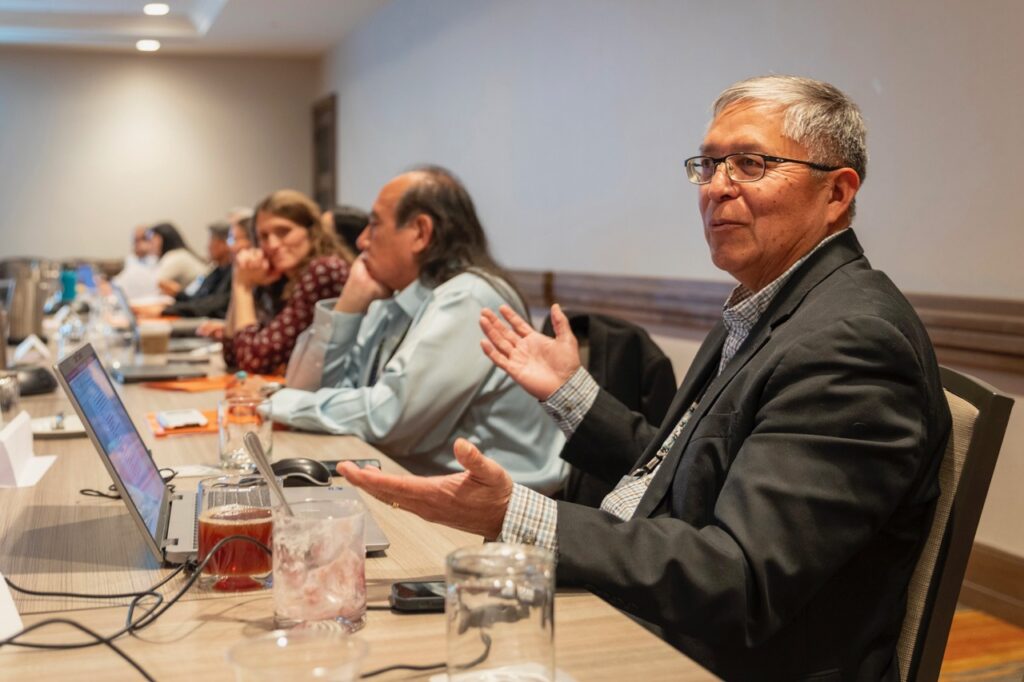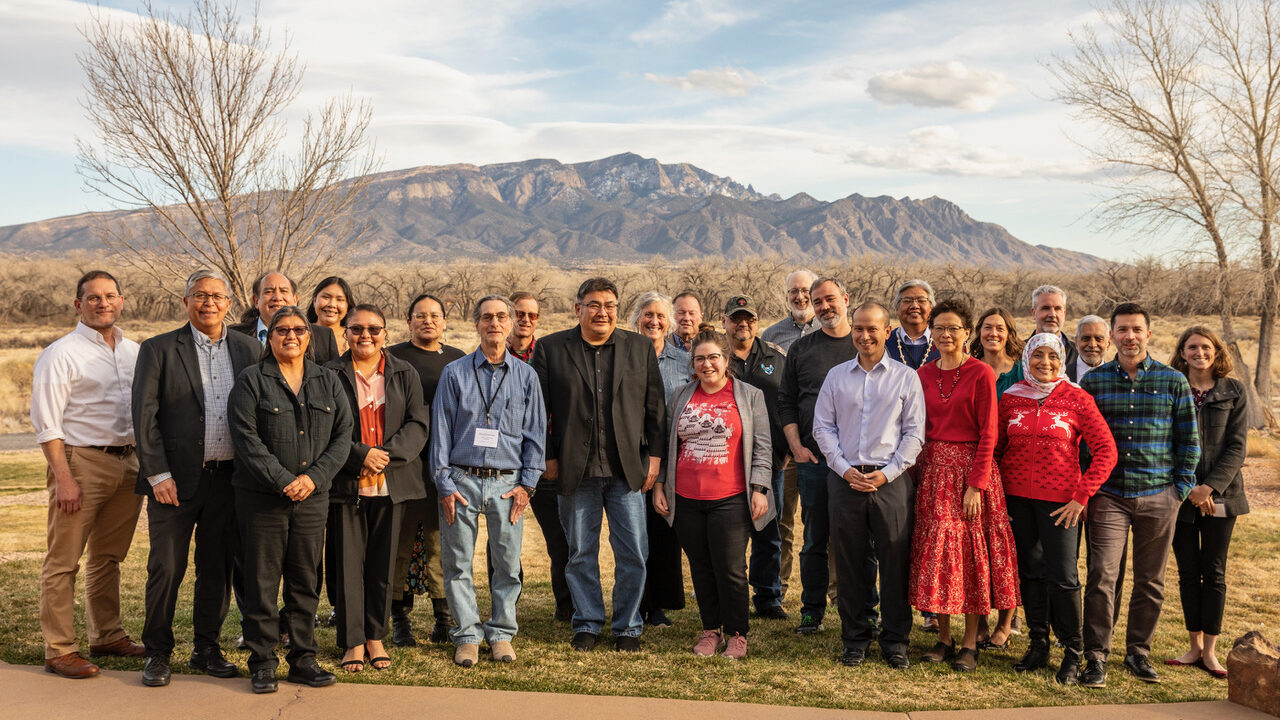The recently held Workshop on Convergent Clean Energy Research explored opportunities and challenges faced by tribes working to develop renewable energy resources.
By Wafa Hozien

In an effort to address critical energy challenges facing sovereign and prosperous tribal nations, the Workshop on Convergent Clean Energy Research recently convened in Santa Ana Pueblo, New Mexico. Sponsored by the National Science Foundation and organized by Microgrid Systems Laboratory, Seattle University, Navajo Technical University and the Rochester Institute of Technology, the workshop brought together leading experts and stakeholders in the field.
The two-day event, held March 12-13, featured keynote addresses, breakout sessions, and panel discussions focusing on various aspects of clean energy development and research agendas. David Breecker, President of Microgrid Systems, assumed the role of lead workshop facilitator. Mara Schindelholz, a program director with the National Science Foundation, highlighted the workshop’s objective of better understanding the technical challenges, cultural values, and workforce development needs associated with clean energy adoption by tribal nations.
Participants engaged in discussions surrounding energy sovereignty and tribal sovereignty, exploring both technical and non-technical challenges in clean energy development, which encompasses a variety of renewable energy resources, including solar, wind, water and geothermal.
Dr. Peter Romine, chairperson of electrical engineering from Navajo Technical University, addressed the workforce needs associated with overcoming these challenges, including the need to design both technical and non-technical research agendas, ensuring that research efforts are respectful, transformative and mutually beneficial to tribal communities.
“Efforts must be grounded in the principles of sustainability and cultural sensitivity to truly empower tribal nations in achieving their energy visions,” he said.
A keynote address by Navajo Technical University President Elmer Guy underscored the significance of research in real-world applications and highlighted contributions by faculty members across disciplines like biology, microbiology, advanced manufacturing and environmental science.
Guy said that these endeavors, rooted in community needs and cultural awareness, exemplified his university’s dedication to advancing the well-being and unity of the Navajo Nation through research-driven innovations. He underscored the ongoing commitment to progress, acknowledging that there are significant endeavors awaiting our attention at Navajo Technical University.
Sandra Begay, a principal member of the technical staff at Sandia National Laboratories, and Stan Atcitty, senior member of the technical staff, stressed the importance of creating relevant research topics that foster genuine, long-term engagement with tribal communities. The importance of sharing research results with communities was also stressed.

Breakout sessions delved into designing technical and non-technical research agendas, followed by a working lunch presentation from the Sustainable Native Communities Design Lab. The event culminated in a panel and plenary synthesis session, where panelists discussed the intersection of research and practice in addressing the energy needs of tribal communities.
The workshop garnered praise from participants across academia, federal research facilities and tribal energy sector organizations. Keynote speaker Jacob C. Moore, vice president and special advisor to the president on American Indian affairs at Arizona State University, emphasized the workshop’s significance in fostering genuine engagement with tribal nations and communities, stating, “I appreciated the care taken in understanding the need for broader energy research to be less extractive, but more transformative, respectful and mutually beneficial.”
Throughout the workshop, Dr. Nathan Williams, an assistant professor at the Golisano Institute for Sustainability at the Rochester Institute of Technology and principal investigator on the NSF grant supporting the workshop, provided insights stemming from his expertise in African energy systems, where he utilizes renewable and decentralized energy technologies to improve electricity access, informed by his extensive experience in large-scale renewable energy projects and his service as a Peace Corps volunteer in Burkina Faso.
The workshop served as a platform for collaboration and knowledge-sharing, empowering indigenous communities to address energy challenges while preserving cultural values and traditions. The outcomes of the workshop will be compiled into a white paper what will lay out a research and workforce development agenda to support the development of clean energy in support of prosperous and sovereign tribal nations.
Wafa Hozien, Ph.D. is a university academic affairs executive. Dr. Hozien can be reached @wafahozien on Twitter and Instagram.
Story published April 1, 2024
Update April 4 to correct photo credit and include Seattle University as a workshop sponsor.
• • •
Enjoyed this story? Enter your email to receive notifications.
